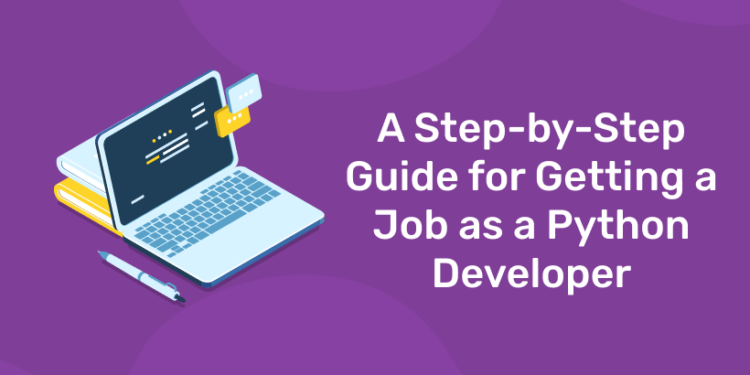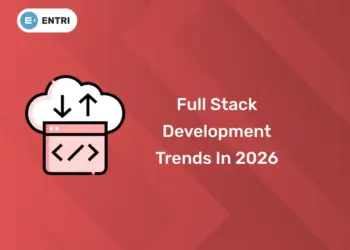A programming language is Python. It is currently one of the most intriguing programming languages. Python is frequently used as a programming example since it is simple to learn. Python is an interpreted programming language, which means that running it does not need compiling it first. If you’ve done any programming at all, you’ll see that this language has a certain poetry. Finding the most aesthetically pleasing and efficient way to construct a set of instructions is a common pastime for programmers. Because of its various libraries, Python allows you to work on more complex projects while yet being incredibly simple to use. Python and the Django framework are currently excellent technological choices for large Internet projects.
“Experience the power of our web development course with a free demo – enroll now!”
System administrators frequently use Python to construct routine processes or just perform maintenance. Additionally, the Python project makes it easy to program in Python to develop Java applications. Python is simple to learn and has more understandable code, making it simpler to maintain. It can be up to five times more compact than, say, the Java language, which boosts developer productivity and artificially lowers the number of defects. There are lots of bookstores in the Python environment. Open-source projects that will simplify your life are always available. Python was created to generate complicated code in a small number of lines.
How to become a Python Developer?
In terms of programming languages, Python is a fantastic all-purpose tool to have. Python could be the finest programming language to start with if you’ve never touched a computer. It is well known that novices may use it. Since its grammar is most similar to English’s, the code is easier to understand. Python has a thriving user community that is continually releasing libraries and pushing out functionality in addition to being simple to understand and comprehend. Anyone may submit their code to develop libraries that other people can utilize because it is an open-source language.
“Ready to take your python skills to the next level? Sign up for a free demo today!”
No matter what Python job you want to end up in, learning Python is a need. Although a degree is not necessary, as was already said, many businesses favor applicants with a bachelor’s in computer science or a closely related discipline. To establish your proficiency with prospective companies, you can also learn Python through alternative methods, such as a coding boot camp, a certificate program, or devoted self-study. You’ll need to exhibit a particular set of traits in addition to all of your education, experience, and technical talents. Those are
- Having strict standards for optimization
- Analytical abilities for addressing problems
- Communication and cooperation
- A desire to learn
Steps to become a Python Developer
There are several potential careers for Python developers, and the one you choose to focus on will influence your workflow more directly. The most well-liked professions are data science, machine learning, AI, software application development, online application development, etc. Let us see some integral steps that you need to follow to become a python developer.
1. Plan your career
The key step in the process is getting an education. The amount of time and money needed may vary depending on the course you ultimately choose. Although a bachelor’s degree in computer science isn’t always necessary for employment, most businesses still prefer it. When it comes to Python, there are countless applications to choose from. It’s important to think about this in advance since as you gain expertise with coding and the language, you’ll probably have a good notion of what you enjoy and don’t. We are unable to provide you with a specific time estimate because everyone will spend a different amount of time creating their route. However, don’t adhere too rigidly to your strategy. So, follow your way with patience.
2. Acquire knowledge
There are many different methods to pursue a degree. a Bachelor’s degree plus a Master’s degree in computer science or a similar subject, a Bachelor’s degree in computer science or a related field, or a full-time coding boot camp. Your education might take anything from 12 months to six years, excluding the time it takes to apply and the wait for your chosen program to begin.
3. Obtain practical experience
For better or worse, the majority of employers prefer to work with applicants who have relevant expertise. For students or freshly graduated programmers, this may provide a perplexing dilemma. Other ways to stand out to employers and make your CV more appealing to hiring managers include working as an intern at a firm, participating in hackathons, contributing to open-source projects, or working on personal projects.
4. Obtain a credential
Universities and institutions provide a wide variety of certifications. They are frequently designed for those who already put in 40 hours a week, and some are in-person, online, or entirely asynchronous. Employers will notice you more if you have certifications, and you may use them as a negotiating tool to raise or lower your compensation. This procedure will benefit from certifications like PCEP – Certified Entry-Level Python Programmer, Professional Certificate Program in Data Science, and Python Programming Certificate.
5. Get ready for the job search
Connect with other Python developers or graduates on LinkedIn and other social media, especially if they work for organizations you’re interested in. When it comes time for an interview, it is essential to have a portfolio of work that you are prepared to discuss.
6. Find employment as a Python programmer
To locate jobs worth applying for, search any or all of these websites. Even if companies are timely in their responses and scheduling interviews, it will often take at least a few months. It might be challenging to pinpoint hiring managers and recruiters in terms of the duration between applications and hiring.
“Get hands-on with our python course – sign up for a free demo!”
Wrapping up
Whatever your academic specialty or intended professional path, there is a great amount of room for advancement in the IT and programming industries. Your pay will rise along with your expertise and time in the position. Learning Python first can help you land some of the highest-paying IT jobs.












